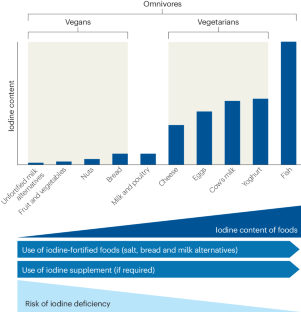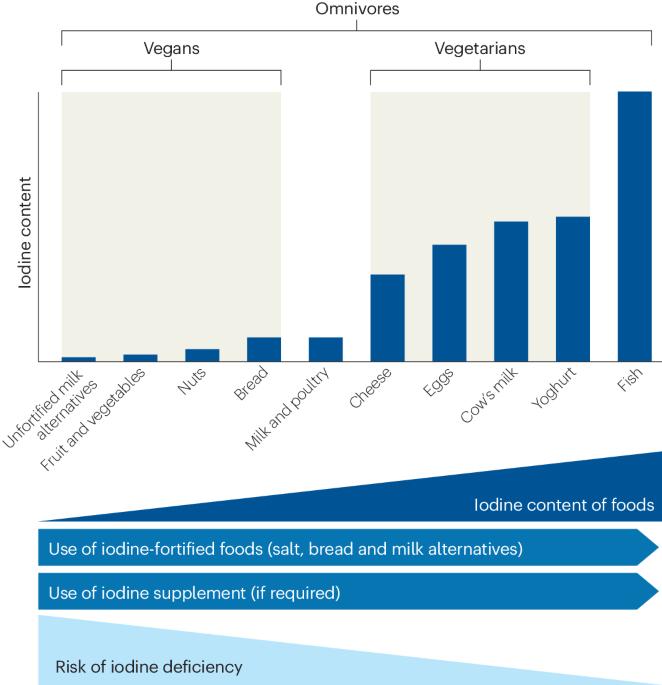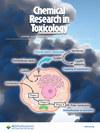Thyroid function and iodine intake: global recommendations and relevant dietary trends
IF 3.7
3区 医学
Q2 CHEMISTRY, MEDICINAL
引用次数: 0
Abstract
Iodine is a micronutrient that is essential for thyroid hormone production. Adequate iodine intake is especially important during pregnancy and early life, when brain development is dependent on thyroid hormones. Iodine intake recommendations vary around the world, but most recommendations generally reflect the increased requirements during pregnancy and lactation, although adequate iodine intake before pregnancy is also important. Tremendous progress has been made in improving iodine intake across the world over the past 30 years, mainly through salt-iodization programmes. However, in countries without strong iodine fortification programmes, and with shifts in dietary patterns, a need has arisen for health organizations, governments and clinicians to ensure that adequate iodine is consumed by everyone in the population. For example, in countries in which adequate iodine intake depends on individual food choice, particularly of iodine-rich milk and dairy products, intake can be highly variable and is also vulnerable to changing dietary patterns. In this Review, iodine is considered in the wider context of the increasing prevalence of overweight and obesity, the dietary trends for salt restriction for cardiovascular health and the increasing uptake of plant-based diets. This Review discusses the importance of adequate iodine intake for thyroid function, outlining the varying global intake recommendations. Iodine is also considered in the context of the increasing prevalence of overweight and obesity, as well as dietary trends such as cardioprotective salt restriction and plant-based diets.


甲状腺功能和碘摄入量:全球建议和相关饮食趋势
碘是一种微量营养素,对甲状腺激素的分泌至关重要。充足的碘摄入量在孕期和生命早期尤为重要,因为此时大脑的发育依赖于甲状腺激素。世界各地对碘摄入量的建议不尽相同,但大多数建议普遍反映了孕期和哺乳期碘摄入量的增加,尽管孕前摄入充足的碘也很重要。过去 30 年中,全世界在提高碘摄入量方面取得了巨大进步,主要是通过食盐加碘计划。然而,在没有实施强有力的碘强化计划的国家,随着膳食模式的改变,卫生组织、政府和临床医生需要确保每个人都能摄入充足的碘。例如,在一些国家,充足的碘摄入量取决于个人对食物的选择,特别是富碘牛奶和乳制品,因此摄入量可能会有很大的差异,而且很容易受到膳食模式变化的影响。在本《综述》中,我们将在超重和肥胖症发病率不断上升、为心血管健康限盐的膳食趋势以及植物性膳食摄入量不断增加的大背景下考虑碘的问题。
本文章由计算机程序翻译,如有差异,请以英文原文为准。
求助全文
约1分钟内获得全文
求助全文
来源期刊
CiteScore
7.90
自引率
7.30%
发文量
215
审稿时长
3.5 months
期刊介绍:
Chemical Research in Toxicology publishes Articles, Rapid Reports, Chemical Profiles, Reviews, Perspectives, Letters to the Editor, and ToxWatch on a wide range of topics in Toxicology that inform a chemical and molecular understanding and capacity to predict biological outcomes on the basis of structures and processes. The overarching goal of activities reported in the Journal are to provide knowledge and innovative approaches needed to promote intelligent solutions for human safety and ecosystem preservation. The journal emphasizes insight concerning mechanisms of toxicity over phenomenological observations. It upholds rigorous chemical, physical and mathematical standards for characterization and application of modern techniques.

 求助内容:
求助内容: 应助结果提醒方式:
应助结果提醒方式:


